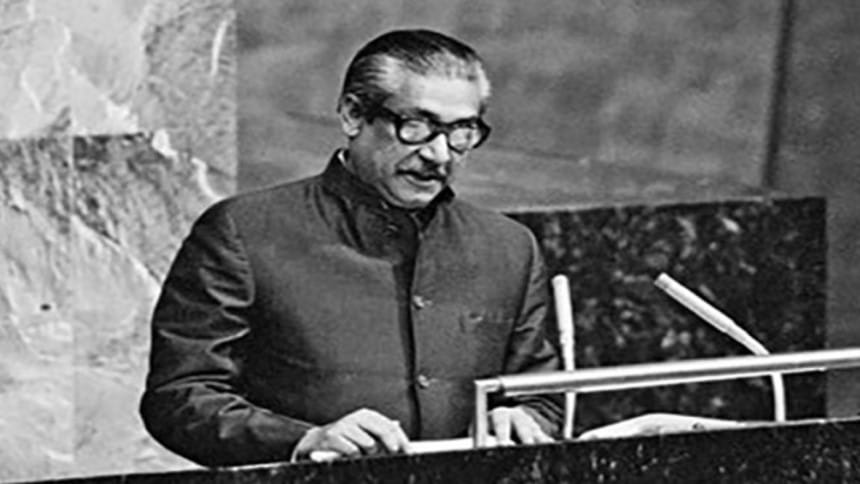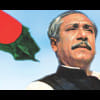Learn about Bangabandhu to ensure economic justice

Bangabandhu Sheikh Mujibur Rahman's economic philosophy gives equal importance to public and private sectors and co-operatives in terms of ownership of industries, said Binayak Sen, director general of the Bangladesh Institute of Development Studies (BIDS), yesterday.
"Bangabandhu's socialism doesn't entail the economy that is only dominated by state-ownership of industries, rather he believed in a mixed form of ownership by public, private and co-operatives," he said.
Sen was delivering a speech at an event titled "Bangabandhu's economic philosophy: contemporary debate" organised by 1971 Genocide-Torture Archive and Museum Trust in Dhaka.
"It is very important for us to read Bangabandhu and understand his vision from the literature about him written by his companions," he said.
"Because this would give us a comprehensive view about the great leader who not only delivered captivating speeches or leadership but also his high-minded thoughts on how to ensure social and economic justice in the country," he said.
"His vision is to ensure development of the country alongside delivering basic needs -- food, education, clothes, etc -- to the people," said Sen.
He envisioned a socialism that would be run diametrically. But the path of implementing such a system was unknown to him as no country in the world had introduced it, he said.
"So, Bangabandhu directed that we shouldn't follow any model to introduce such system as even the Soviet Union couldn't implement socialism," he said.
Bangabandhu did not want a Bangladesh that would be run by a handful of families wielding monopoly over the country's resources. He did not want the fate of the people to be determined by the rich and influential, he added.
Sen said the formation of Bangladesh Krishak Sramik Awami League (BAKSAL), which required all other parties and associations including various services and forces to join the national party, was for a limited period.
Bangabandu wanted to overcome political and economic crisis introducing this system, he said.
Muntassir Mamoon, trustee chairman at 1971 Genocide-Torture Archive and Museum Trust, was present.

 For all latest news, follow The Daily Star's Google News channel.
For all latest news, follow The Daily Star's Google News channel. 







Comments